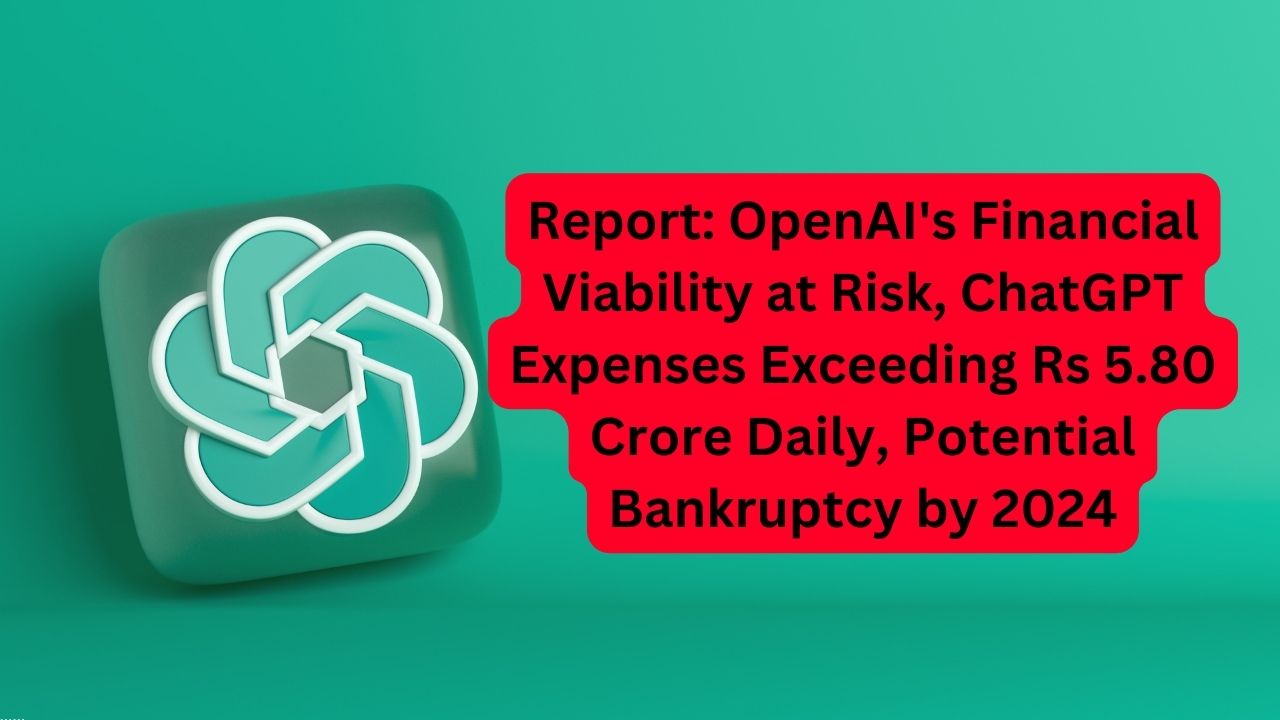
In the rapidly evolving domain of artificial intelligence (AI), OpenAI, the trailblazing AI studio, has played a pivotal role in democratizing AI discussions among non-technical individuals. However, the company is currently grappling with significant obstacles that have jeopardized its financial stability. Led by Sam Altman, OpenAI’s ambitious mission to establish itself as a leader in generative AI, particularly through its AI chatbot, ChatGPT, has been both a triumph and a test.
Navigating Financial Turmoil
Reports have surfaced outlining OpenAI’s financial struggles arising from its operational expenses. The maintenance cost of a single AI service, ChatGPT, is estimated at approximately $700,000 (Rs 5.80 crore) per day. This predicament has pushed the company towards a potential financial crisis, as highlighted in a comprehensive report by Analytics India Magazine.
The Quest for Monetization
OpenAI’s efforts to capitalize on its AI advancements, including GPT-3.5 and GPT-4, have not translated into the desired financial outcomes. Despite an impressive launch and initial user engagement, the company has failed to generate revenues that match its substantial costs. This situation underscores the urgent need for effective monetization strategies to ensure sustainable operations.
Erosion of User Engagement
After a promising start, OpenAI and ChatGPT have experienced a decline in user engagement over recent months. Data from SimilarWeb reveals a 12% reduction in the user base in July 2023 compared to the preceding month, resulting in a drop from 1.7 billion users to 1.5 billion users. Notably, this data pertains solely to users visiting the ChatGPT website and does not encompass users utilizing OpenAI’s APIs.
The Dynamics of OpenAI’s APIs
OpenAI’s APIs have both expanded its reach and introduced new challenges. While the adoption of OpenAI’s APIs by various companies has broadened its user base, it has also intensified competition. Organizations are now empowered to develop their AI chatbots for diverse applications using these APIs. This shift in the landscape has implications for OpenAI’s strategic direction and financial viability.
The Open-Source Conundrum
OpenAI faces robust competition from open-source large language model (LLM) frameworks, which can be freely employed and adapted without licensing restrictions. This presents a complex situation, as organizations can tailor these frameworks to suit their specific needs, potentially reducing the demand for proprietary AI services like ChatGPT.
Strategizing Monetization and Investor Backing
Acknowledging the financial challenges, Sam Altman recognized the substantial operational costs tied to running OpenAI and ChatGPT. Monetization strategies were implemented, with recent investments from companies like Microsoft providing support. However, the imperative for consistent revenue generation remains critical to the company’s long-term sustainability.
Unconventional Competition
While traditional rivals like Google and Meta pose competition, Elon Musk’s xAI project has emerged as a unique contender. Musk’s involvement in AI through Tesla has spurred him to create “TruthGPT,” a chatbot aiming to address biases and hallucinatory tendencies associated with OpenAI’s ChatGPT. Musk’s significant investments in xAI’s infrastructure and algorithms underscore his commitment to this endeavor.
In conclusion, OpenAI’s voyage through the AI landscape has been a blend of remarkable achievements and formidable trials. As it strives to secure its financial footing, the company must navigate challenges related to user engagement, API utilization, open-source alternatives, and effective monetization strategies. The field of AI is fluid and adaptive, and OpenAI’s ability to innovate will be pivotal in determining its future success.
What is the primary challenge facing OpenAI?
OpenAI is currently grappling with significant financial challenges stemming from the high operational expenses of maintaining its AI services, particularly ChatGPT.
How has user engagement changed for OpenAI?
SimilarWeb data indicates a 12% decline in user engagement in July 2023 compared to the prior month, leading to a reduction in the user base.
How do OpenAI's APIs contribute to its challenges?
While OpenAI's APIs have expanded its user base, they have also intensified competition, enabling organizations to develop their AI chatbots using these APIs.
Why is the open-source challenge important for OpenAI?
Open-source large language model frameworks pose a challenge as organizations can freely customize and repurpose them, potentially diminishing demand for proprietary AI services.
Who presents unconventional competition to OpenAI?
Also Read
What is 5G Network?- Know About Speed, Advantages, Disadvantages

One thought on “Report: OpenAI’s Financial Viability at Risk, ChatGPT Expenses Exceeding Rs 5.80 Crore Daily, Potential Bankruptcy by 2024”